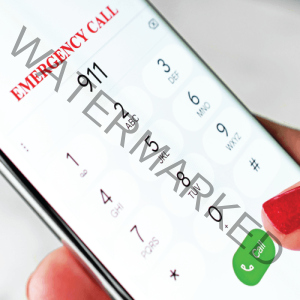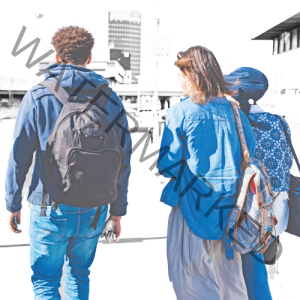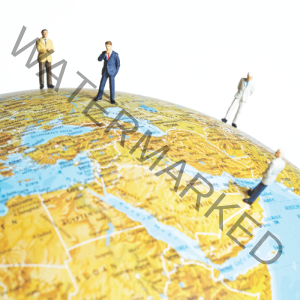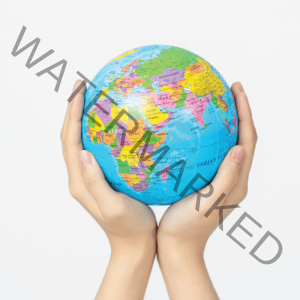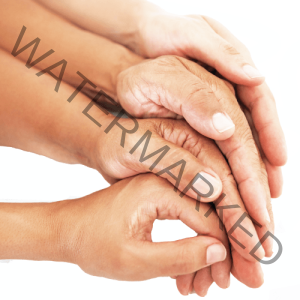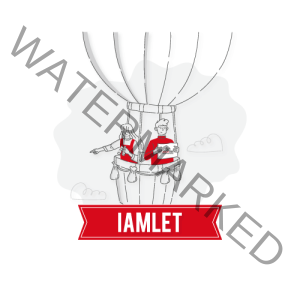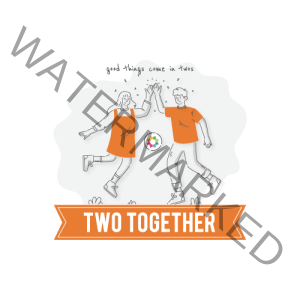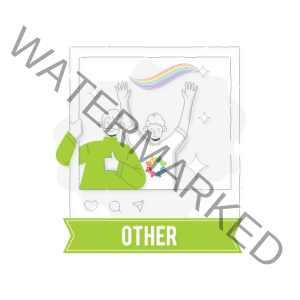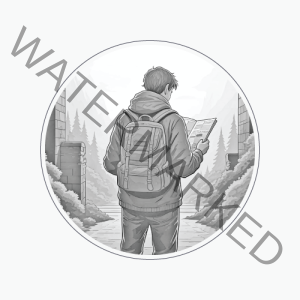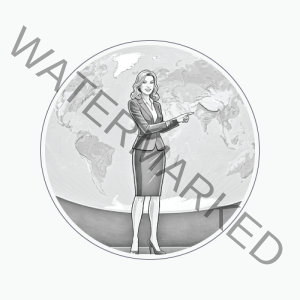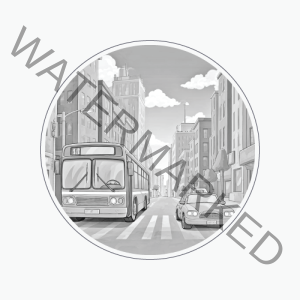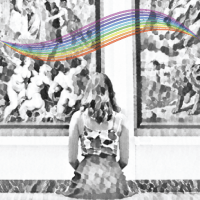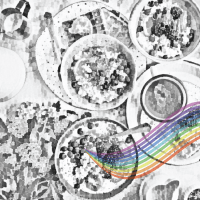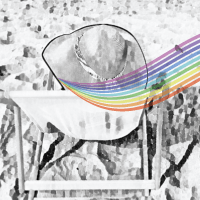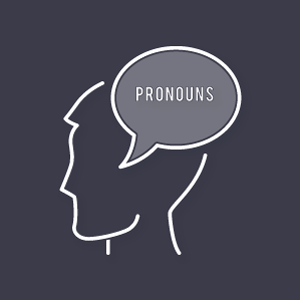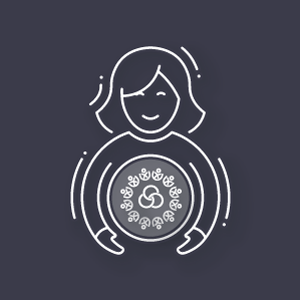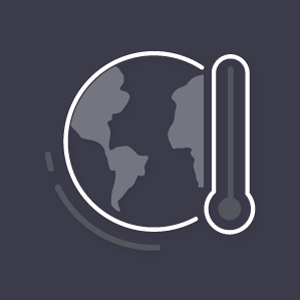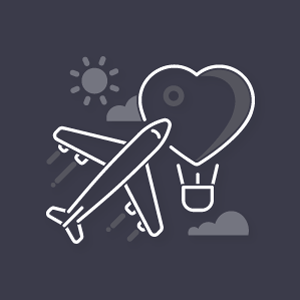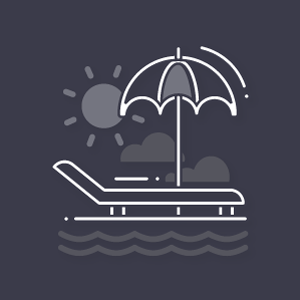
LGBTQIA+ Travel Guides:
Destination Cape Town
- Atilla Tiriyaki
- Average Reading Time: 22 minutes
- Travel
- articles, atillat
Cape Town has long been a popular destination in the continent and with LGBTQIA+ travellers. The city is often called the Mother City, reflecting its long history and importance in the country and Africa. With a large collection of stunning mountains, a long coastline, and a large collection of rare and unique plant species, it is clear why it is considered one of the New Seven Wonders of the World. Cape Town is a vibrant city with a lot to offer visitors, whether exploring the three Unesco World Heritage sites, taking a stroll or hike through any of the six national parks or just enjoying the nightlife and the international cuisines and drinks available in the many restaurants and bars found throughout the city, Cape Town is and will remain a top travel hot spot in both African and the world.
DISCLAIMER
All published articles are intended for an audience aged 18 years and over and have been written by members of the general public. Many will likely not be journalists nor be affiliated with any professional bodies associated with members of the media. The articles will likely be based on the authors' own opinions, views, and experiences...more
Located in the Southern part of Africa in the region known as Western Cape, Cape Town is the legislative capital and seat of the Parliament of South Africa. Cape Town is the country’s oldest and second-largest city, best known for its mountain ranges and peninsula. The city expands an area of 2,461 square kilometres or 950 square miles and has a population of around 4.7 million. People identifying as Black or Multiracial make up approximately 80% of the population, with white ethnicities equating to about 16%. Afrikans is the most spoken first language, followed by Xhosa and then English, and some of the city and region’s most prominent industries are information technology and movies. The film industry is so large that the city has the largest sector in the Southern Hemisphere, generating over 500 Million US Dollars each year.
Tourism is important to Cape Town, equates to less than 10% of the GDP, and is a major employer of the city’s workforce. Cape Town is popular with South Africans from other provinces and international tourists, with over 1.6 million visiting from overseas each year. In addition to the mountain ranges, UNESCO World Heritage sites and national parks, the Western Cape has a coastline that stretches over 300 kilometres or 186 miles and has over 72 beaches, with over 33 with blue flag recognition for their high standards with regards to quality, safety, environmental education and information. Some of the most popular beaches include the four Clifton Beaches, Camps Bay and Llandudno, making it a perfect retreat for those wishing to relax and bathe in the sun.
Some interesting facts you might not know:
Tourism is important to Cape Town, equates to less than 10% of the GDP, and is a major employer of the city’s workforce. Cape Town is popular with South Africans from other provinces and international tourists, with over 1.6 million visiting from overseas each year. In addition to the mountain ranges, UNESCO World Heritage sites and national parks, the Western Cape has a coastline that stretches over 300 kilometres or 186 miles and has over 72 beaches, with over 33 with blue flag recognition for their high standards with regards to quality, safety, environmental education and information. Some of the most popular beaches include the four Clifton Beaches, Camps Bay and Llandudno, making it a perfect retreat for those wishing to relax and bathe in the sun.
Some interesting facts you might not know:
- The modern city of Cape Town was founded in 1652 as a settlement and supply station for the Dutch East India Company. Little is known about the city’s history before 1488, as that is the first time it was mentioned in various travellers’ accounts. The city’s name has also changed, from the Cape of Storms (Cabo das Tormentas) to the Cape of Good Hope (Cabo da Boa Esperança), finally becoming known as Cape Town. Cape Town also has the nickname of Mother City because it is considered the first European settlement on the African continent.
- South Africa has three capital cities, Cape Town being one of them. Pretoria is the executive, Bloemfontein is the judicial, and Cape Town is the legislative. As the legislative capital, it is home to the seat of the Parliament of South Africa, and it is the second-largest city in the country.
- Part of Cape Town is built on reclaimed land. In the 1940s, a section of the city, known as the Cape Town Foreshore Plan, was built over the sea. Due to the city’s location and proximity to its mountain range and over 130 named mountains, of which includes Table Mountain, as the city grew, developers and the authorities were not able to go any further up the slopes of the surrounding mountains and instead, began to reclaim land from the sea. Over 194 hectares of land were reclaimed, and the area within the city today is where you can find the convention and civic centres and the city’s railway station.
- The city of Cape Town is home to two Unesco World Heritage Sites. The first is Robben Island, an island in Table Bay located off the northern coast of Cape Town. The island, which was once used as a leper colony, and from 1961, was used as a prison for political prisoners and convicted criminals by the South African Government. It is best known as the prison in which the political activist and lawyer Nelson Mandela was imprisoned for 27 years until the fall of apartheid. The second is the Cape Floristic Region, a protected area that covers 1 million hectares or 2.7 million acres and includes eight regions within the city, including the Table Mountain National Park.
- Cape Town is home to the first garden in the world devoted to preserving and protecting the country’s indigenous plant life. It is one of ten national gardens in South Africa. The Kirstenbosch Botanical Gardens are located on the eastern slopes of Table Mountain. The gardens were founded in 1913 and are set on over 528 hectares or 1.3 thousand acres and are home to over 7,000 plant species.
- Cape Town’s Castle of Good Hope is the oldest colonial building in South Africa. The castle was built in the mid-1600s by the Dutch East India Company as a bastion fort. The Castle of Good Hope replaced the older Fort de Goede Hoop, which was located on the same site and built on the city’s shoreline. Since the land reclamation in the 1940s, the castle is now inland and situated on Strand Street, where Strand means beach in Afrikaans.
- The western region of the city is home to the Cape Winelands. An area that covers an area of 22.3 thousand square kilometres or 8.6 thousand square miles and is home to over 500 wineries. Wine has been produced in the cape since 1659 by the early Dutch settlers, and the area was called the Boland, which means up land, higher land or the land above. The Cape Winelands area is known for its favourable Mediterranean climate. It has hot, dry summers and cool, damp winters, perfect conditions for growing grapes and wine production.
- Cape Town’s Koeberg Power Station is the only nuclear power plant in South Africa and the only commercial nuclear power station on the African continent. Located 30 kilometres or 18.6 miles north of Cape Town, near Melkbosstrand, the power station produces approximately 5% of South Africa’s electricity production.
- Cape Town has clean beaches. In 2016, 10 of the city’s beaches were awarded Blue Flag status for their high environmental and quality standards for cleanliness, water quality, facilities, and safety. A significant achievement as the city was the first to be certified with a Blue Flag outside of Europe
- Table Mountain is one of the world’s new seven wonders of nature. In 2008, an internet-based global poll was conducted to establish the modern wonders of nature in the world. The campaign received over 100 million votes, and the iconic Table Mountain in Cape Town was announced as one of the winners. The table mountain goes by many names, including Tafelberg in Afrikans and Huriǂoaxa in Khoekhoe, which means emerging from the sea. The flat-topped mountain is a significant landmark and a popular tourist attraction, with a cable car service that takes you to the mountain’s plateau at 1 thousand metres or 3.5 thousand feet, offering a 360-degree view as you ascend the scenic landscape.
- Cape Town was home to the first heart transplant operation in the world. On December 3, 1967, Dr Christiaan Barnard from Groote Schuur Hospital successfully performed the first-ever pioneering heart transplant on the patient, Mr Louis Washkansky. Though the operation was a success, sadly, Mr Washkansky died 18 days later from pneumonia. The process revolutionised cardiac surgery, and today, the museum, named the Heart of Cape Town, can be found at the site of the operating theatre where the actual surgery took place.
- Cape Town is ranked among the world’s most gay-friendly cities. Each year in December, the city hosts the Mother City Queer Project (MCQP). This annual themed costume party event started in 1994 and has grown to become one of the most attended LGBTQIA+ yearly events on the African continent.
Cape Town is located in the southwestern region of South Africa in the province known as the Western Cape. Many flights from Europe will usually take over eleven hours, with many direct flights departing frequently from major European cities. It will typically take between 14 and 21 hours from North America, and many direct and indirect routes are available. .
BY AIR
BY AIR
- Cape Town International Airport or Kaapstad Internasionale Lughawe (///gazette.slipped.turns – CPT (IATA) | FACT (ICAO)) is an international airport and one of the busiest airports in Africa and the second in South Africa, after Johannesburg. The airport is located 20 kilometres or 12 miles southeast of the centre of Cape Town and serves over 70 flights each day and 11 million passengers every year. The airport is the main domestic hub for Airlink and FlySafair and a focus city for the national carrier, South African Airways, with Johannesburg being the most popular domestic route and London (UK) and Amsterdam (the Netherlands) being the most popular international routes. The most popular method of getting to the airport is using the local taxi firms and booking apps, such as Bolt, DiDi, and Uber. The Licenced (metered) taxis will typically display the PrDP, a permit issued by the Department of Transport from the City of Cape Town. The journey usually takes 30 minutes and costs anything from 300 South African Rand or 16 US Dollars, depending on your destination. MyCiTi, the Rapid Bus Transit service that operates across the city, usually offers a bus service from the city centre to the airport; however, it is currently suspended.
- Cape Town Cruise Terminal (///crewmember.apprentice.spurring) is one of the busiest ports in Africa. Many major cruise lines use the cruise terminal, including MSC, NCL-Norwegian, Azamara, Crystal, Silversea, and Hapag-Lloyd. It typically sees an average of over 145,000 cruise passengers yearly, with over 70 cruise ships making a port of call at the terminal. The terminal is in the city’s northern section, next to the Victoria & Alfred Waterfront and is 800 meters or 2624 feet from the De Waterkant neighbourhood. The port has several amenities, including convenience stores, food outlets, baggage collection and a tourist information service.
- Cape Town Railway Station (///intermodal.consultancy.amenity) is the main station located on Adderley Street, Cape Town, close to the Castle of Good Hope and Victoria and Alfred Waterfront. The state-owned Passenger Rail Agency of South Africa operates the station. It has 24 platforms and is a terminal for the Metrorail, Shosholoza Meyl, and Blue Train services. Metrorail is a commuter rail service that operates over 122 stations within the city and across the Western Cape. The Shosholoza Meyl service (http://www.shosholozameyl.co.za/) is a long-distance passenger rail service that connects the city to Johannesburg, Kimberley, Durban, Bloemfontein, Pietermaritzburg and East London; however, the service is currently suspended. The Blue Train (https://www.bluetrain.co.za/) service is a 1,600-kilometre or 990-mile luxury train journey between Pretoria and Cape Town. The Blue Train is considered one of the most luxurious train journeys in the world. It has a butler service, an observation car, two lounge cars, an en-suite, and carpeted compartments.
- The Civic Centre Intercity Bus Station (///shunning.pitting.tracing) is the main bus and coach station in Cape Town. It offers routes to areas throughout the city and other parts of the country. Several coach operators use the station as a base, including Greyhound, Big Sky, iLulaBus, Intercape, Eagle Liner, Delta and Eldo Coaches, offering over 600 buses and coaches to the city. The bus station has designated waiting areas, restrooms and free Wi-Fi. For more information about the coach routes, visit the bus booking service known as Busbud (https://www.busbud.com/en-gb/bus-cape-town/c/k3vngp)
Interactive Airport Terminal Maps
Discover the interactive travel maps on Gayther. Zoom in and click on individual stations, see all of the lines and much more
Cape Town has many public transport options, including the Golden Arrow Bus service, the Rapid Bus Transit service known as MyCiTi and the Metrorail. For many tourists, the most popular and safest route to travel is by Taxi. The city has bike rental shops all over town, dedicated bicycle lanes and many mountain biking trails, which makes bike rentals a popular alternative for those wishing to explore the city. The Metrorail and Golden Arrow Bus services allow you to pay for travel using the local currency, the South African Rand, whereas MyCiti Buses are cashless and require you to get a myconnect card from station kiosks and approved retailers and top up the card with a pre-paid package before travelling.
- The Metrorail Western Cape consists of 4 lines and 122 stations and runs from north to south and east to west of the city. A unique colour system references each line from Pink to Green. It includes the Bellville, Bonteheuwel, Cape Flats and Simonstown lines, and trains are frequent every 10 minutes during the daytime and every 30 minutes at weekends. The six KM zones group fares and the standard single trip per adult range from 10.50 to 23.50 South African Rand or 0.54 to 1.28 US dollars. The Metro rail operates daily from 3 a.m. to 6 p.m. and serves over two million daily passengers. Tickets can be purchased at Metrorail stations. Anyone wishing to travel on the Metrorail should take precautions; tourists may be targeted regarding pickpocketing and physical thefts.
- The Golden Arrow Bus service consists of 1,300 routes and 1171 vehicles and serves two hundred and thirty thousand passengers daily. The bus operates 24 hours a day, and the peak period is from 4 p.m. until 8 a.m. Fares for a standard single trip per adult start from 10.50 South African Rand or 54 US cents. A ticket can be purchased from the driver; however, you would be required to have exact change or small notes, as the driver typically only has a limited cash float for change. Alternatively, the service offers a GoldCard, which can be topped up and used on journeys on the service. For more information about the Golden Arrow Bus service, visit the official website (https://www.gabs.co.za/)
- The Rapid Bus Transit service, or MyCiTi, consists of 36 routes, 42 bus stations, and more than 600 bus stops across the city. The popular service operates 224 vehicles and serves over 60 thousand daily passengers. The bus runs from 4 a.m. until 10 p.m., seven days a week, and the buses are frequent and typically arrive every 30 minutes. The network is considered safe, and a standard single trip per adult starts from 28 South African Rand or 1.53 US dollars. A ticket can be purchased from the driver; however, you would be required to have exact change or small notes, as the driver typically only has a limited cash float for change. Alternatively, the service offers a myconnect card, which can be topped up and used on journeys on the service. For more information about the Golden Arrow Bus service, visit the official website (https://www.myciti.org.za/en/home/)
- The licenced metered taxis offering the hail-and-ride service will typically display the PrDP, a permit issued by the Department of Transport from the City of Cape Town. Even though taxis can be found throughout the city, it is worthwhile to establish the likely cost of a trip before travelling and at nighttimes to avoid travelling alone. A popular alternative to metered taxis is using local taxi firms and booking apps, such as Bolt, DiDi, and Uber.
- Mini-bus taxis are common in the city, are informal and offer a unique experience. The taxis will display a destination, usually on a piece of paper or cardboard and passengers wanting to go to a set destination will begin filling up the mini-bus. The taxis often become overcrowded, and each passenger will pay the agreed fare with the fare collector, gaatjie. When on the journey, the driver will likely stop multiple times, dropping off and picking up additional passengers, and when you are approaching where you want to get off, you will need to instruct the driver. Taxi services typically run from 6 a.m. until 8 p.m., and the charge may be higher during peak times.
Interactive Travel Information
Discover the interactive travel maps on Gayther. Zoom in and learn more about individual stations, all of the lines and much more

Cape Town offers a wide range of accommodation options, from luxury hotels to comfortable hostels. The price and range will vary depending on the suburb and distance to the main attractions, but the cost is extremely affordable. The average cost per night in the city is around 3,000 ZAR or 160 US Dollars, and many thousands of hotel beds are available across the city. With the city’s extensive transport infrastructure, staying outside the city centre is also viable. Most hotel providers will include the bed tax, which is charged at 15% and often included within the cost of the room. However, when settling your bill, you will likely have to pay the additional tourist tax, known as the tourism levy or TOMSA, of 1% per night.
- The Rockefeller Hotel By Newmark (///pickled.anymore.interposed) is located in the northwestern part of the city, close to the Victoria and Alfred waterfront and Foreshore area. The Rockefeller Hotel by Newmark is a four-star hotel in one of the best and most central locations in the city. The hotel is set over 18 floors and has 395 air-conditioned guest rooms, including standard, king, studio, one, two and three-bedroom apartments and suites, all offering free Wi-Fi. The hotel has a range of amenities, including a restaurant, bar and sushi bar, a rooftop pool, state-of-the-art gym and 24-hour concierge service. The average cost for a standard room is around 100 US dollars, and the hotel offers a range of room options. For more information regarding the hotel, please visit the Rockefeller Hotel By Newmark’s website (https://newmarkhotels.com/accommodation/the-rockefeller-hotel)
- The Wink One Thibault (///poking.reconsidering.whispering) is located in the city centre and within walking distance of the Victoria and Alfred Waterfront. The Wink One Thibault is a 3.5-star hotel and is one of the tallest residential buildings in Cape Town. The hotel is set over five floors, from levels 15 to 20 and has 102 air-conditioned guest rooms, including studio and one and two-bedroom apartments, all offering free Wi-Fi. The hotel has a range of amenities, including a 24-hour reception desk and concierge, secure onsite parking, laundry facilities, and a coffee bar at the reception area. The average cost for a standard room is around 70 US dollars, and the hotel offers a range of room options. For more information regarding the hotel, please visit the Wink One Thibault website (https://winkaparthotels.co.za/one-thibault/)
- Newlands Peak Aparthotel by Totalstay (///rake.satins.hygienists) is located in Newlands Peak close to Newlands Forest and Kirstenbosch National Botanical Garden. The four-star apartment hotel has 35 air-conditioned studios and one- and two-bedroom apartments offering free Wi-Fi. The hotel has a range of amenities, including a rooftop swimming pool, fitness centre, 24-hour security, and garden, and most apartments include a balcony. The average cost for a standard room is around 80 US dollars, and the hotel offers a range of room options. For more information regarding the hotel, please visit the Newlands Peak Aparthotel by Totalstay website (https://www.newlandspeakaparthotel.co.za/)

Cape Town is one of the most visited destinations on the continent and in South Africa. A city and seaport, Cape Town is one of the country’s oldest cities and is surrounded by stunning landscapes and is referred to as the Mother City, given it was the first location where European colonists landed when they arrived on the continent. The city has one of the most iconic coastlines, is surrounded by 130-name mountains and has three of the world’s UNESCO heritage sites. Robben Island, off the coast of Cape Town, holds significant worldwide importance concerning the anti-apartheid movement as it was the location in which Nelson Mandela, the activist and politician, was held captive for the majority of his 27 years of imprisonment. Cape Town is steeped in history and full of natural beauty, making it a popular tourist hot spot for people worldwide. With a bustling nightlife, many cuisines and restaurants on offer, museums, and impressive parks, Cape Town has a lot to offer visitors.
- Cape Point and the Flying Dutchman Funicular (///supported.canals.kerfuffle) is located on the southeastern corner of the Cape Town peninsula. The point covers an area of 30 kilometres or 18.6 miles and is made up of rugged rocks and sheer cliffs that tower 200 meters above sea level. The Flying Dutchman funicular is a popular method for visitors to get to the best vantage point at the new lighthouse and lookout points, as well as the many restaurants and retail stores. The 16-seat funicular runs along a 585-metre or 1.9-thousand-foot track and travels 87 meters or 285 feet in height. The ride takes approximately 4 minutes, costing 5 US dollars for an adult return ticket and 21 US dollars for entry into the park. For more information about Cape Point and the Flying Dutchman Funicular, visit the Cape Point website (https://capepoint.co.za/)
- Table Mountain and the Table Mountain Aerial Cableway (///spasmed.endangers.remark) is one of the city’s most iconic mountains, with its distinct flat-topped three kilometres or two miles length plateau. The mountain and national park is the most visited tourist destination in South Africa. The UNESCO World Heritage site covers an area of 221 square kilometres or 85 square miles and is over 600 million years old, making it one of the oldest mountains in the world. The park has over 8 thousand plant species, and 70% of plants can only be found on the mountain. For those wishing a scenic view as you ascend to the plateau, an aerial cableway service offers a 5-minute ride that climbs over 1,000 metres or 3,500 feet. The cable car costs 20 US dollars for an adult return ticket and 11 US dollars for entry into the boulders section of the park. For more information about Table Mountain and the Aerial, visit the Table Mountain website (https://www.tablemountain.net/)
- Robben Island (///juiciness.superfast.lowlights) is located 6.9 kilometres or 4.3 miles off the coast of northern Cape Town. The oval-shaped island was fortified and used as a prison from the late seventeenth century until the end of apartheid in 1996. Robben Island was a maximum-security prison that housed many notable activists during apartheid. Some of the most famous include presidents Nelson Mandela, Kgalema Motlanthe and Jacob Zuma. The island is now a living museum and UNESCO World Heritage, making it a popular tourist destination. The museum is open from Monday to Sunday from 8 a.m. to 5 p.m., and tours to the island operate between 3 and 4 times daily. Tour times include 9 a.m., 11 a.m., 1 p.m. and 3 p.m., and a return ticket costs around 87 US dollars. For more information about Robben Island, visit the official website (https://www.robben-island.org.za/)
- Wine Tour – Groot Constantia (///reproductions.cobra.pant). South Africa has long been an award-winning producer of wine. Groot Constantia is one of the oldest wine estates in the county and a popular tour for wine lovers who visit the city. Located in Constantia in Southern Cape Town, it is a 17th-century estate that covers an area of 160 hectares or 395 acres and produces a range of red wines, including Shiraz and Merlot. The Goot Constantia offers a wine tour and tasting experience and is open from 10 a.m. until 5 p.m., seven days a week. Several wine-tasting tours and experiences are available, and prices start from 8 US Dollars. For more information, visit the Groot Constantia website (https://grootconstantia.co.za/experience-groot-constantia/)
- Kirstenbosch National Botanical Garden (///stammers.tablets.sanding) is a national park covering an area of 528 hectares or 1,300 acres and is home to over 7,000 species of plants. The garden includes a large conservatory that showcases plants from different regions of the country and includes many rare and endangered species. The gardens also have many restaurants, a bookshop, a gift shop, a stone exhibition and a nursery. Entry to the park costs an average of 12 US dollars, and the park is open from 9 a.m. until 5 p.m., seven days a week. For more information, visit the visit the Kirstenbosch National Botanical Garden website (https://www.sanbi.org/gardens/kirstenbosch/)
Many countries in Africa over the years have resisted the gay equality movement, with some even implementing anti-LGBTQIA+ legislation, which today affects countless community members living within the continent. Even though Africa has a poor track record for LGBTQIA+ equality and human rights, South Africa has consistently bucked the trend and has long been a safe haven for the community. From an LGBTQIA+ perspective, Cape Town consistently ranks high in being one of the gay-friendliest cities in the world, which is why it was given the nickname of Africa’s ‘gay capital’.
De Waterkant is the heart of the city’s rainbow district within the affluent Green Point (Groenpunt) suburb northwest of the business district. De Waterkant is considered a gay village and is home to many hotels, guesthouses, LGBTQIA+ clubs, bars, and restaurants, including Café Manhattan, the city’s oldest gay bar. During the Cape Town Pride festival, which usually occurs at the end of February, De Waterkant is the epicentre and offers an excellent experience for festivalgoers. Cape Town is accepting of the community, and it is not uncommon to see two men or two women holding hands as they walk the city streets.
Like many countries worldwide, the city and surrounding areas are generally accepting and welcoming of the LGBTQIA+ community. When exploring the city, most community members will feel the freedom to be themselves and find many of the locals they encounter to be warm, friendly and welcoming of tourists; however, even though attitudes have changed over the years in the more rural areas within the Western Cape, some people may not be as welcoming and inclusive, and discretion may need to be applied. The city has a thriving community, and coupled with the natural beauty of Cape Town and its many attractions, it is clear why the city draws in over 1.4 international visitors each year and is ranked as one of the top destinations on the continent.
Unfortunately, South Africa has a high crime rate, and most cities are very different during the day and at night. Though there are many things to do at night, it is always worthwhile to plan; taking only the items you need with you, avoiding public transportation and using taxis to get around the city will significantly reduce the risk of incidents. Whether you are straight or those who identify as LGBTQIA+, Cape Town has a lot to offer visitors; from its international cuisine to stunning national parks, the Mother City truly is a top global destination that suits most travellers’ needs and budget types.
De Waterkant is the heart of the city’s rainbow district within the affluent Green Point (Groenpunt) suburb northwest of the business district. De Waterkant is considered a gay village and is home to many hotels, guesthouses, LGBTQIA+ clubs, bars, and restaurants, including Café Manhattan, the city’s oldest gay bar. During the Cape Town Pride festival, which usually occurs at the end of February, De Waterkant is the epicentre and offers an excellent experience for festivalgoers. Cape Town is accepting of the community, and it is not uncommon to see two men or two women holding hands as they walk the city streets.
Like many countries worldwide, the city and surrounding areas are generally accepting and welcoming of the LGBTQIA+ community. When exploring the city, most community members will feel the freedom to be themselves and find many of the locals they encounter to be warm, friendly and welcoming of tourists; however, even though attitudes have changed over the years in the more rural areas within the Western Cape, some people may not be as welcoming and inclusive, and discretion may need to be applied. The city has a thriving community, and coupled with the natural beauty of Cape Town and its many attractions, it is clear why the city draws in over 1.4 international visitors each year and is ranked as one of the top destinations on the continent.
Unfortunately, South Africa has a high crime rate, and most cities are very different during the day and at night. Though there are many things to do at night, it is always worthwhile to plan; taking only the items you need with you, avoiding public transportation and using taxis to get around the city will significantly reduce the risk of incidents. Whether you are straight or those who identify as LGBTQIA+, Cape Town has a lot to offer visitors; from its international cuisine to stunning national parks, the Mother City truly is a top global destination that suits most travellers’ needs and budget types.
Are you planning a trip to South Africa? Gayther’s travel guides provide all the essential travel information, useful translations and LGBTQIA+-specific information. Gayther guides provide you with all the information you need when planning your trip.
Learn more about the weather and climate information for Cape Town. Discover the best time to travel to a specific area, when it is the hottest, when there is the least chance of rain or when it might snow.
Discover more about available modes of transport in Cape Town. Whether cruise ports, metro stations or international airports, you will find them all on Gayther. Many popular transportation systems will feature enhanced listings, including interactive maps and click links to stations, lines or routes, airport terminals and amenities.
IMPORTANT DISCLAIMER: All published articles have been written by members of the general public. Many will likely not be journalists nor be affiliated with any professional bodies associated with members of the media. The articles will likely be based on the authors’ own opinions, views, and experiences. Gayther does not endorse or accept any responsibility or liability regarding any materials within the news and media pages. This page may contain external links to third party websites; Gayther provides these links for your convenience and does not endorse, warrant or recommend any particular products or services. By clicking on any external links, you will leave Gayther and be taken to the third-party website, which you do so at your own risk and by accessing the site, you will be required to comply with the external third party’s terms and conditions of use and privacy policies
Discover all of the topical articles written by people from across the community and friends, all sharing their stories, opinions and experiences

